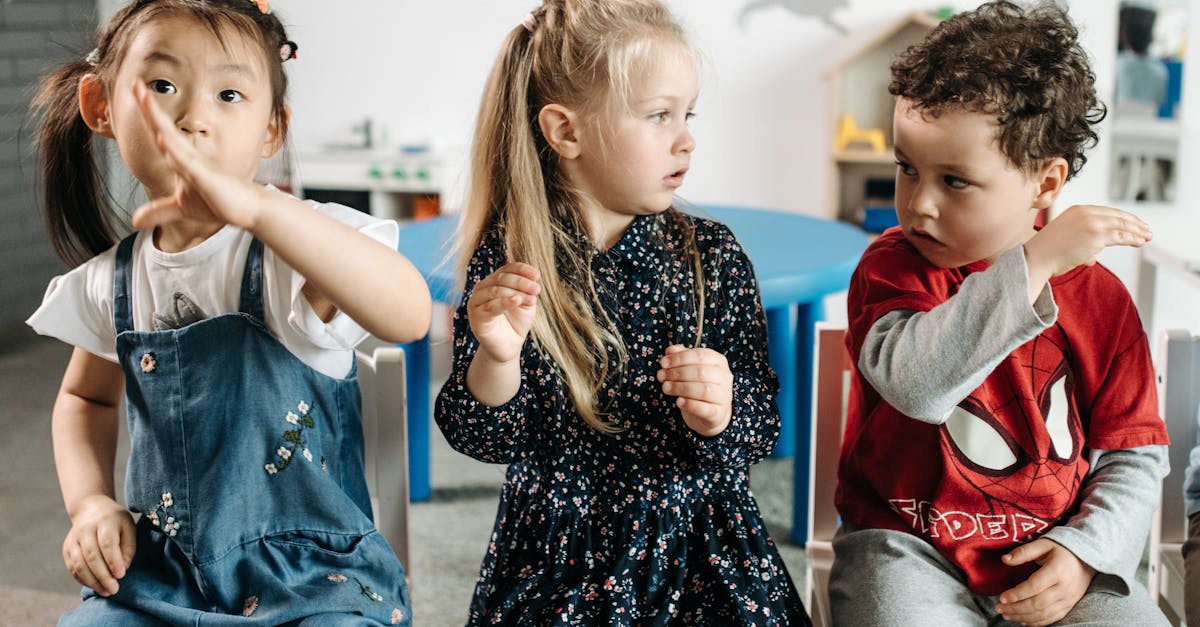Understanding Empathy: The First Step
Empathy isn’t just a big word—it’s a big idea! At its core, it’s about understanding and sharing the feelings of others. This trait is crucial for preschoolers as they interact with siblings and peers who might have different interests.
Imagine trying to explain to your toddler why their sibling loves playing with blocks instead of toy cars. Encouraging empathy starts with introducing these concepts in simple terms. Instead of pulling your hair trying to explain complex emotions, use everyday situations and age-appropriate language.
When preschoolers understand empathy, they are better equipped to appreciate their peers’ different likes and dislikes. Besides, it’s a lot of fun watching them realize that clapping for a sibling’s block tower is as exhilarating as hugging their teddy bear.

Fun Group Activities
Children love to play! It’s in their DNA, and it’s a perfect doorway to nurture empathy. Organize small group activities that celebrate different interests, from painting to LEGO construction. Encourage them to work on common goals. Whether it’s building a sandcastle together or crafting a paper boat, these activities promote teamwork and celebrate diversity.
I once witnessed my kid’s group activity turn into a full-fledged debate about the best superhero—every child’s eyes lit up with passion! The key is to highlight that different interests add color to the world.
Engaging Games to Spark Interest
- Group painting sessions
- LEGO construction challenges
- Building sandcastles
- Crafting paper boats
Games like ‘follow the leader’ can also spark conversations about why someone might choose one path over another.

Role-Playing Everyday Scenarios
Role-playing might be your secret weapon in the empathy-building toolkit. Allow your children to step into another’s shoes in various scenarios. Start with common situations—like trading toys with a friend or sharing space at the playground. It teaches kids how others might feel in these situations.
Role-playing prepares preschoolers to treat people with kindness. Remind them that different perspectives might offer solutions they hadn’t considered before. My kid once ‘became’ a spaceman during role-play, leading to a hilarious—but insightful—exchange about how everyone has different dreams!

Rewards and Recognition
Rewards and praise go a long way in reinforcing empathetic behavior in children. A pat on the back or a sticker reward each time they demonstrate kindness helps boost their willingness to empathize with others. Recognize small actions, and celebrate them!
One day, I caught my kid offering a cookie to her tearful buddy. A spontaneous kitchen dance ensued in her honor—a bit wacky but incredibly effective! Positive reinforcement helps preschoolers associate empathy with positive experiences. It is indeed heartwarming to see them connect these values to everyday actions.

Open Conversations at Home
Keep lines of communication open! Discuss the day’s events and explore various feelings involved. Use examples from school or playgroups to spark these conversations. Make it regular—like a chat during snack time or a part of bedtime rituals.
Addressing Confusion
Address any confusion they might have about differing interests. Trust me, even preschoolers have complex emotions! By being engaged in these talks, parents can understand their child’s emotional landscape better.
Exploring Emotions
Did your child find it hard to understand why someone didn’t share? Dive into that curious mind and offer gentle guidance. Remember, it’s these very conversations that frame a child’s understanding of empathy.

Engaging in meaningful conversations not only nurtures emotional intelligence but also strengthens the parent-child bond.
